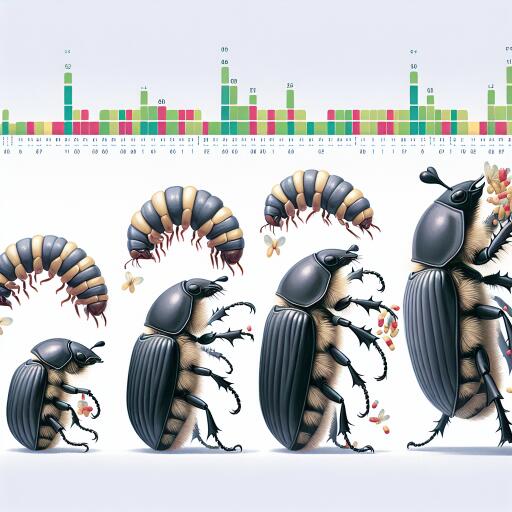Exploring the Evolution of Gene Body Methylation in Burying Beetles
The complex interplay between genetics, environment, and behavior continually shapes the natural world. A study recently published in Nature Communications delves deep into this interplay by examining the burying beetle, specifically how the sustained loss of parental care over generations influences gene expression and methylation patterns. This research illuminates the subtle, yet profound, impacts of environmental changes on genetic expression, offering insights into the process of evolutionary adaptation.
Gene Expression Shifts in Response to Parental Care Loss
The study meticulously differentiated the gene expression resulting from both evolved differences and the immediate environmental impacts of removing parental care. By analyzing first-instar larval gene expression in burying beetles from various conditions, researchers found a significant shift associated with the loss of parental care. This shift was consistent across beetles derived from both full care (FC) and no care (NC) populations, highlighting the direct impact of environmental changes on gene expression regardless of the population’s evolutionary history with care.
Differential Gene Expression Analysis
When comparing beetles that had continually received parental care to those suddenly experiencing its loss, researchers identified a marked reduction in the number of differentially expressed genes (DEGs) in the NC population—a population that had not received care for 29 generations. This suggests an adaptation to the loss of parental care, reflected in a “blunted” gene expression response in the NC population compared to the FC population.
The Role of Gene Body Methylation
Gene body methylation (5mC), predominantly found in the genes of burying beetles, was analyzed to understand its relationship with gene expression. Upon comparing differentially methylated genes (DMGs) between populations and conditions, the study revealed shifts in methylation patterns in response to the loss of parental care. Notably, a significant number of genes altered their methylation levels when parental care was first removed, with somewhat fewer alterations observed after 30 generations of evolution without care.
Gene Ontology and Methylation’s Impact on Adaptation
Gene ontology analysis highlighted how changes in gene expression and methylation predominantly affected three categories: stress response, immune function, and growth and development. Initially, the loss of care sparked an upregulated stress response and increased immune defense. However, over generations without care, there was a pivot towards genes associated with development and neurotransmission, suggesting evolutionary adaptation towards life without parental intervention.
Coordinated Changes in Methylation and Expression Variability
The study further explored whether methylation changes were random or coordinated across genes, revealing a more organized shift in methylation within genes that underwent change. This coordinated methylation was associated with greater transcriptional stability, suggesting that methylation might play a role in reducing gene expression variability, potentially as a form of evolutionary adaptation to sustained environmental changes.
Addressing the Origin of Methylation Differences
Interestingly, the research showed that the differences in methylation between populations could not be solely attributed to genetic divergence, as evidenced by the low correlation between gene methylation and single nucleotide polymorphisms (SNPs). This indicates that other factors, possibly epigenetic mechanisms or environmental influences, play a significant role in determining gene body methylation patterns.
Conclusion
Through a comprehensive study of the burying beetle, researchers have provided valuable insights into how sustained environmental changes, such as the loss of parental care, drive genetic and epigenetic adaptations. The evolution of gene body methylation observed in this species exemplifies the intricate relationships between genetics, behavior, and environment, contributing to our broader understanding of evolutionary biology. As we continue to explore these dynamics, we come closer to unraveling the complexities of life and adaptation on Earth.









